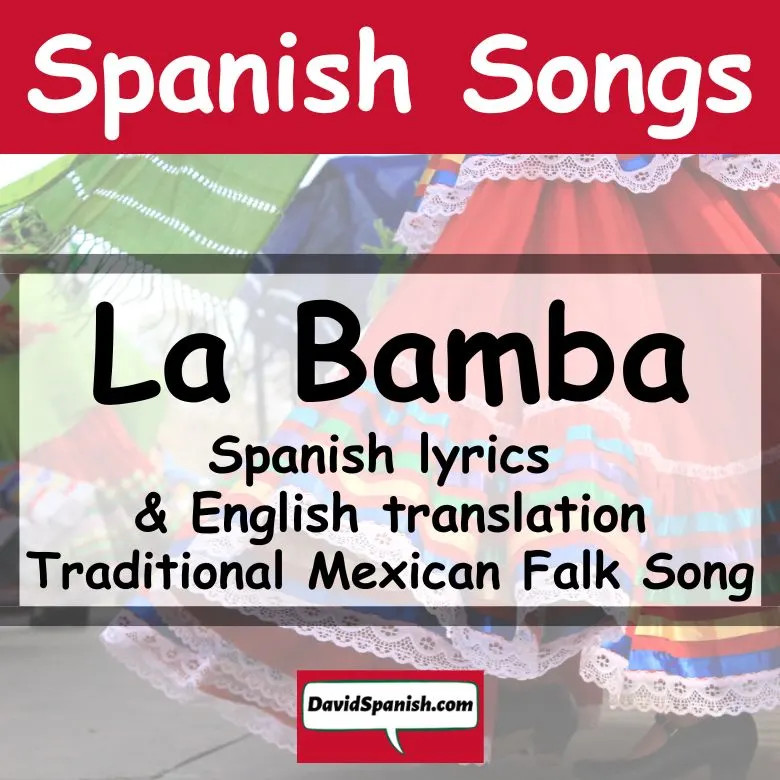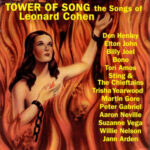“La Bamba” is more than just a catchy tune; it’s a global phenomenon that transcends language barriers and generations. This iconic song, deeply rooted in Mexican folk tradition, has been popularized by artists across different eras, most notably Ritchie Valens in 1958 and Los Lobos in 1987. But beyond its infectious rhythm, what do the lyrics of “La Bamba” actually mean? Let’s delve into the Spanish verses and explore the rich cultural context behind this timeless song.
 Iconic image representing La Bamba song lyrics and cultural impact
Iconic image representing La Bamba song lyrics and cultural impact
Tracing the Roots of “La Bamba”: From Veracruz to the World Stage
“La Bamba” originates from Veracruz, Mexico, a vibrant state known for its rich musical heritage. The term “bamba” itself, in Spanish, refers to “the beat” or “the rhythm.” It’s derived from the verb “bambolear,” which evokes movements of swaying, wobbling, or tottering – all suggestive of dance and musicality. Historically, “La Bamba” was a traditional folk song often performed at weddings and celebrations in Veracruz. Lyrics were frequently improvised, adding to its dynamic and communal nature.
The earliest recording of “La Bamba” dates back to 1938, credited to Alvaro Hernández Ortiz, offering a glimpse into its traditional form. However, it was Ritchie Valens who catapulted “La Bamba” into the international spotlight. His rock and roll adaptation in 1958 topped the US charts, introducing the song to a wider audience and embedding it in popular music history. Decades later, Los Lobos revitalized “La Bamba” with their version for the 1987 biopic of Ritchie Valens, aptly titled La Bamba. This rendition also soared to number one in numerous countries, reaffirming the song’s enduring appeal and cross-generational resonance.
Decoding the Spanish Lyrics of “La Bamba”
The lyrics of “La Bamba,” while seemingly simple, carry layers of meaning related to dance, tradition, and personal commitment. Let’s break down each line:
“Para bailar La Bamba” – This opening line translates directly to “To dance La Bamba” or “To dance the beat.” The Spanish word “para” can mean “for” or “in order to,” suggesting the purpose and intention right from the start: this song is for dancing.
“Se necesita una poca de gracia” – This line means “You need a little grace.” The verb “necesitar” means “to need,” and “se necesita” can be interpreted as “you need” or “one needs.” “Una poca de gracia” translates to “a little grace” or “some grace.” Grace, in this context, refers to flair, elegance, and ease of movement – essential qualities for dancing “La Bamba.”
“Pa’ mí, pa’ ti” – A shortened form of “para mí, para ti,” this phrase means “for me, for you.” It signifies inclusivity and sharing, suggesting that the dance and the joy of “La Bamba” are meant to be experienced by everyone.
“Ay arriba, y arriba” – These words, while literally translating to “Up, and up,” function more as interjections of encouragement. “¡Arriba!” in Spanish is often used to mean “Come on!” or “Up!”. In the song, it injects energy and excitement, urging dancers to get moving and immerse themselves in the rhythm.
“Por ti seré, por ti seré, por ti seré” – This line translates to “For you I will be, for you I will be, for you I will be.” “Seré” is the future tense of the Spanish verb “ser” (to be). This phrase expresses dedication and commitment. While open to interpretation, it can be seen as a declaration of devotion – whether to a loved one, to the dance itself, or to the spirit of “La Bamba.”
“Yo no soy marinero, yo no soy marinero, soy capitán” – These lines translate to “I am not a sailor, I am not a sailor, I am a captain.” This is perhaps the most metaphorical line in the song. In the context of the lyrics about dance and grace, it can be interpreted as a statement of confidence and taking charge. The singer might not be a “marinero” (sailor), someone who navigates the sea of life passively, but rather a “capitán” (captain), someone who takes control and leads with assurance and skill – perhaps on the dance floor, or in life in general.
La Bamba Spanish Lyrics and English Translation
| Spanish Lyrics | English Translation |
|---|---|
| Para bailar La Bamba | To dance La Bamba |
| Para bailar La Bamba | To dance La Bamba |
| Se necesita una poca de gracia | You need a little grace |
| Una poca de gracia | A little grace |
| Pa’ mí, pa’ ti, ay arriba, ay arriba | For me, for you, ah come on! ah come on! |
| Y arriba, y arriba | And come on! come on! |
| Por ti seré, por ti seré, por ti seré | For you I will be, for you I will be, for you I will be |
| Yo no soy marinero | I am not a sailor |
| Yo no soy marinero, soy capitán | I am not a sailor, I’m (the) captain |
| Soy capitán, soy capitán | I’m the captain, I’m the captain |
| Bamba, bamba | Beat, beat |
| Bamba, bamba | Beat, beat |
| Bamba, bamba, bam | Beat, beat, beat |
| Para bailar La Bamba | To dance La Bamba |
| Para bailar La Bamba | To dance La Bamba |
| Se necesita una poca de gracia | You need a little grace |
| Una poca de gracia | A little grace |
| Pa’ mí, pa’ ti, ay arriba, ay arriba | For me, for you, ah come on! ah come on! |
| Para bailar La Bamba | To dance La Bamba |
| Para bailar La Bamba | To dance La Bamba |
| Se necesita una poca de gracia | You need a little grace |
| Una poca de gracia | A little grace |
| Pa’ mí, pa’ ti, ay arriba, ay arriba | For me, for you, ah come on! ah come on! |
| Y arriba, y arriba | And come on! come on! |
| Por ti seré, por ti seré, por ti seré | For you I will be, for you I will be, for you I will be |
| Bamba, bamba | Beat, beat |
| Bamba, bamba | Beat, beat |
| Bamba, bamba | Beat, beat |
The Lasting Legacy of La Bamba
“La Bamba”‘s global appeal is undeniable. Its simple yet infectious rhythm, combined with lyrics that celebrate dance and community, have resonated with audiences worldwide for decades. From Ritchie Valens’s rock and roll explosion to Los Lobos’s cultural revival, “La Bamba” continues to be a staple at parties, celebrations, and in popular culture. Its presence in movies, commercials, and as a karaoke favorite underscores its enduring popularity. More importantly, “La Bamba” has played a significant role in popularizing Latin music on a global scale, bridging cultures and bringing the vibrancy of Mexican musical tradition to the world stage. So, the next time you hear “La Bamba,” remember it’s not just a song; it’s an invitation to dance, to share, and to experience the rhythm of life.

